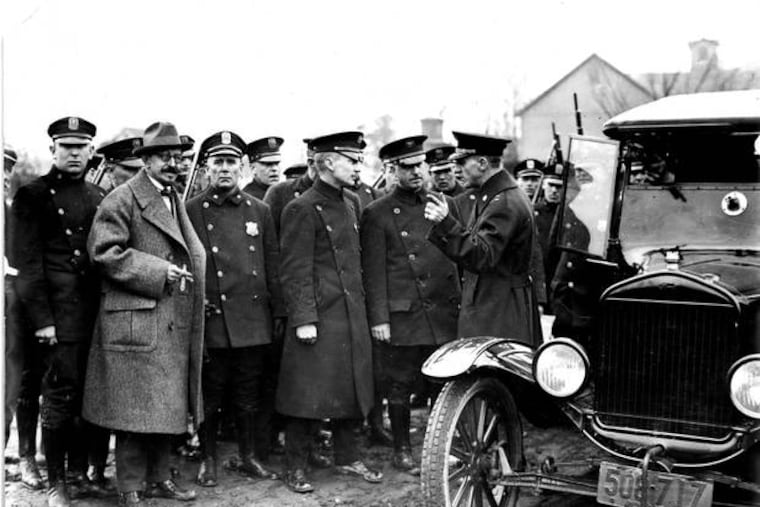This week in Philly history: A Marine is brought in to clean up corruption during Prohibition
On Jan. 7, 1924, decorated Marine Smedley Butler officially stepped into his position as Philadelphia’s director of public safety, tasked with cleaning up the vice-infested city.

Maj. Gen. Smedley Darlington Butler led contingents of Marines into action over a 20-year period at the beginning of the 20th century. He charged through Cuba, the Philippines, China, Nicaragua, Honduras, Mexico, and Haiti, and along the way he collected the Congressional Medal of Honor — twice.
But nothing compared to his time as Philly’s top cop over nearly two years in the mid-1920s.
“Cleaning up Philadelphia,” he later lamented, “was worse than any battle I was ever in.”
Butler, a native of West Chester and the son of a U.S. representative, was named Philadelphia’s director of public safety in 1924, on loan from the U.S. Marine Corps.
New Mayor W. Freeland Kendrick wanted help in ridding the town of its debauchery, decided he needed a drastic solution, and received presidential permission to call upon the 42-year-old war hero. During his Prohibition-era tenure, Butler was tasked with cleaning up corruption in the police and fire departments, and purging vices from the city.
Butler had carte blanche when he officially took the reins on Jan. 7, 1924.
“It looks as though nobody in Philadelphia is being shot but policemen,” he said during a meeting of police at the Metropolitan Opera House on that first day of service. “You’ll have to snap out of that habit. Get some notches on your guns for bandits. We’ll see to it that you get [a] real reward for every notch.”
It escalated quickly.
He raided speakeasy clubs and Republican ward clubs and gentlemen’s clubs, with or without proper warrants.
He busted bottles of confiscated hooch, and busted friends of politicians. He shut down gambling halls and saloons and all other dens of iniquity.
Church bells rang throughout the city on Sunday, Jan. 13, from grateful clergy in celebration of Butler’s work combating “powers of darkness.”
Butler ran up a high arrest total, with some outlets reporting 17,000 during his tenure. But the number of convictions was much smaller, some reports listing a few hundred, as Butler lacked support in the city’s court system.
And as his tear through the city included venues that were reportedly connected to the mayor who hired him, Butler’s crusade started losing steam.
By Christmas Eve 1925, the mayor fired Butler, and the experiment was over.
Butler returned to the Marines until his retirement in 1931, and settled in Newtown Square until his death in 1940 at age 58, less than two decades after the church bells rang.